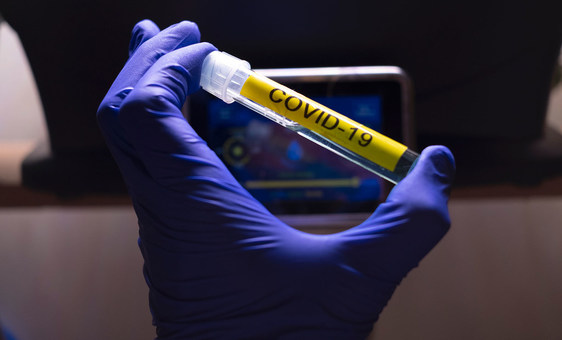West Bengal Government issued new guidelines, on Wednesday, which suggested that Covid patients in hospital should visit a doctor for a check-up on the 14th and 28th day from discharge and then at least once every month for a year, say the guidelines for post-Covid management of patients.
The schedule may be altered according to a patient’s clinical condition.
According to the guidelines people in home isolation must visit a doctor within seven days of the end of their 17-day home isolation from the onset of symptoms. The guidelines have also mentioned that even mild Covid-19 may lead to long-term symptoms like cough, fever and fatigue.
Doctors who have been treating Covid patients said the emerging nature of the disease was one reason why people who have recovered from the infection are suggested to follow-up consultations at regular intervals. Hence, they said it was still early to list all complications of Covid, which is why long-term monitoring is required.
“Patients should follow up on the 14th & 28th day post-discharge. Then monthly for next 1 year. Follow up schedule may be altered according to patients’ clinical condition,” the guidelines said. “First follow up within one week from completion of 17 days’ home isolation”, is the recommendation for people who were asymptomatic or had mild symptoms and were not admitted to hospital.
The guidelines also mention some tests like blood sugar level, ECG, D-dimer (to detect any blood clot in arteries) and chest X-ray. The frequency of the tests will vary depending on the severity of the illness.
Sanjib Bandyopadhyay, a doctor at Beleghata, ID Hospital, Kolkata, who has been treating Covid patients since March, said the disease was not even one year old in India and regular check-up post-recovery was necessary to prevent further complications.
“Many Covid patients are showing complications immediately after recovery. The disease is impacting various organs,” said Bandyopadhyay.
“Covid-19 is still an emerging disease. We do not yet have enough evidence to definitively say what the long-term complications are. That is why people who have recovered need to remain under regular monitoring.”
According to The Telegraph’s report on December 11 said that there were a number of cases in the city of people suffering a cerebral stroke or cardiac arrest a few weeks or months after recovering from Covid.
Doctors classified these, as well as other serious problems like infections in the brain, as some of the severe post-Covid complications.
Bandyopadhyay said fibrosis of lungs, a condition marked by damage of lung tissues, had turned out to be a common post-Covid complication. A number of non-diabetic persons became diabetic following recovery.
Another doctor said some Covid patients suffered from diabetic ketoacidosis, a serious complication of diabetes that occurs when the body produces high levels of blood acids called ketones.
The guidelines state those who had moderate or severe illness should get a blood sugar test and chest X-ray done a month after recovery and then every six months.
A doctor said it was also important for people who recuperated at home to consult a doctor after their 17 days’ home isolation ended. “No doctor could examine the person during the home isolation period. A common person may not give much importance to a symptom, but that can turn into a major problem if neglected for a long period.
It is always advisable to consult a doctor after the home isolation ends,” said the doctor.










